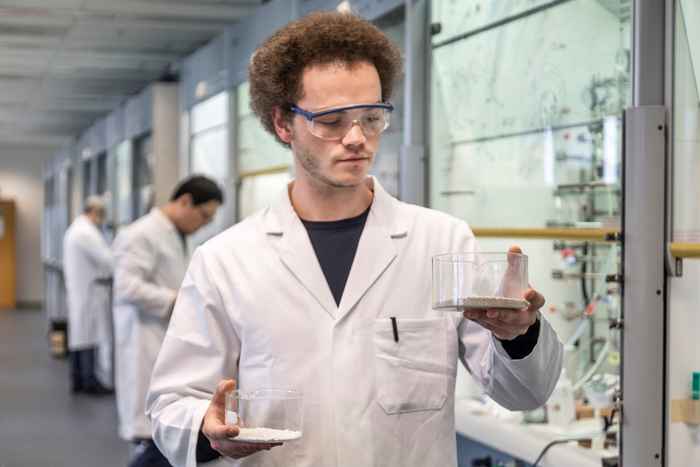Phosphorus Chemistry
Slootweg group
Phosphorus is essential for life on Earth and plays a prominent role in modern science and technology, where organophosphorus compounds are of immense importance for their wide-ranging applications in material science, nanotechnology and life sciences. At present, however, the overall industrial processes to produce these phosphorus compounds are unsustainable, energy-intensive, and inefficient.
To meet the growing demand for phosphorus derivatives, whilst complying with increasingly stringent environmental regulations and sustainability issues, we will advance P(III)/P(V) redox cycling and modernise the use of phosphorus by developing novel one-electron processes that minimise unnecessary redox reactions. Our interdisciplinary approach in organophosphorus chemistry exploits all facets of physical (in)organic chemistry, with a key focus on synthesis, molecular and mechanistic design, and sustainability. In our research projects, we will develop:
- (i) the controlled generation of P-radicals and their reactivity to establish novel open-shell (radical) pathways, thereby advancing P-sustainability and the eco-friendly production of benign phosphorus compounds; and
- (ii) novel redox reactions of phosphines, spent phosphine oxides, phosphoric acid and waste phosphates to enable their use as renewable feedstocks for chemicals traditionally synthesised from elemental white phosphorus (P4), which will prevent their constant spillage in the environment.
We will implement these innovations into a broader context and develop scalable protocols, which are needed to realize sustainable phosphorus chemistry on a large scale, introducing recycling, clean, and ‘cradle-to-cradle’ technologies as ground-breaking changes in the field to ensure the continued beneficial use of phosphorus. This research project has significant relevance for the Dutch National Research Agenda on Circular economy and resource efficiency: it will enforce a paradigm shift by developing efficient redox cycling methods to convert waste phosphates directly into high-value products using novel synthetic methodologies, and hence, contribute to modernising phosphorus chemistry by setting new frontiers.
